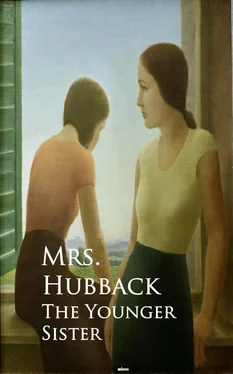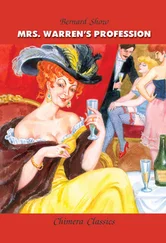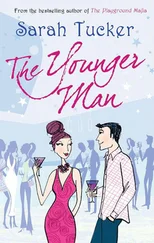"I would rather do anything than marry for money," observed Emma, "it is so shocking. I would rather be teacher at a boarding school."
"I have been at school, Emma, which you have not, and know what a school teacher is—such a life—I would rather do anything than that!"
"But to marry without love—that must surely be worse," persisted Emma.
"Oh, I would not marry without love, exactly; but I think I could easily love any tolerably good-tempered man, who could give me a comfortable home. I am sure I would make any body a good wife; unless they were very cross. But your idea of
loving
is just another of your refinements, Emma; and only does for rich people who can afford such luxuries."
Emma did not reply; but presently said—
"I think there is only one Miss Edwards, you told me."
"Oh yes, Mary Edwards is the only daughter; and I wish you particularly to observe who she dances with; whether she is much with the officers, especially if Captain Hunter is very attentive to her. I must write to Sam soon, and he will be anxious to hear—"
"Why should he care?" enquired Emma.
"Because, poor fellow, he is very much in love with her himself—and he begged me to watch for him, and let him know what chance he has—I must say, I do not think he has any at all; and even if Mary liked him, her father, and certainly her mother, would not encourage it. If Sam were set up for himself even, as an apothecary, I do not know that they would let her think of him; but being merely an assistant to a country doctor, I am sure he ought to have no hopes."
"Poor fellow," said Emma, "you think he loves her, do you?"
"Oh yes, I have no doubt of
his
love being very strong; he is always writing about her, and, when he comes home, trying to see her: however, he says now, he does not mean to see her again, unless he gets some decided encouragement; or else he might have tried to come here and meet her at this ball: he will not ask for a day at Christmas, unless I send him a good account."
"Well, I will be sure to observe," replied Emma.
No more conversation could pass between the sisters, as they had reached the outskirts of the town; and the noise of the carriage wheels on the rough pitching of the street, made all attempts to be heard quite fruitless. Elizabeth whipped and urged on the old horse into something like an animated trot, and they soon were threading their way between the carts of cabbages, and turnips—waggons of hay—stalls of cattle, and sheep—old women with baskets—young women with fine gowns—boors with open mouths, and idle boys and girls with mischievous fingers congregating in the untidy market-place of a small country town. Having successfully crossed these, and escaped without accident, though not without some apprehension on Emma's part, they proceeded along the High Street in safety, until the house of Mr. Edwards was reached. Elizabeth certainly expected Emma to be somewhat impressed with the grandeur of this, the principal residence of the town; but the bright red-brick house created no peculiar sensation in her mind, though she saw it was one story higher than the neighbouring buildings. The dark green door, glittering brass knocker, and snow white steps, were likewise considered by Emma as things of course, being unaware that they testified to the wealth and taste of the proprietor, and when their knock was answered by a footman in livery, as Elizabeth had foretold, she was yet so entirely ignorant as to regard him without emotion, or entertain any feeling of extra respect for his master.
They found Mrs. and Miss Edwards sitting together—the father, of course, was at his office and not likely to appear till dinner time. Mary Edwards was a pleasing looking girl, though the curl papers, which were a part of her preparation for the evening, did not improve her appearance. Her manner was rather reserved, but less so than that her mother—whose formal stiffness was so great, that Emma almost fancied herself an unwelcome guest; and felt so uncomfortable and frightened, as to be more than half inclined to accompany Elizabeth home again. When, after sitting a short time, the latter rose to depart, leaving her sister with a sinking heart, Mrs. Edwards tried to be agreeable, enquired how Emma liked their country—whether she walked much—and if she usually enjoyed good health—to all which questions, Emma returned answers as coherent and intelligible as could be expected from a person whose thoughts were fixed on another subject. Her mind was involved in a labyrinth of wonder, as to the reason why Mrs. Edwards had so far punished herself as to have invited one to whom she seemed so very unfriendly.
After half an hour of this unpleasant intercourse, the ladies went up stairs to dress; and as the two girls were now together, without the mother's cold looks to distress them, they soon became more easy and intimate. The little cares of the toilette—the assistance they mutually afforded each other—the interest thereby raised, quickly dispersed the apparent coldness of Mary Edwards' manner; and she even ventured to observe to Emma, that she thought her like her brother. It was easy to guess which brother she meant, and Emma did not force her to particularise; but as Miss Edwards turned away directly after uttering this, and bent over a drawer to search for something, which she never found, it was impossible to decide as to the degree of her blushing; but Emma thought, at the moment, her companion looked so very pretty and lady-like in her ball-dress, that she felt no surprise at her brother's predilection.
Mr. Edwards joined them at dinner; and, whilst he was helping the soup, he repeated the observation, which his daughter had previously and privately made, that Miss Emma Watson was very like her brother.
Mrs. Edwards coolly replied she did not see it.
"We are very well acquainted with your brother, Mr. Sam." resumed Mr. Edwards. "He usually dines with us, when he is at home."
Emma did not know exactly what to answer, but Mrs. Edwards took up the subject in her peculiarly cold manner, and observed:
"It is, now, many months since
we
have seen anything of Mr. Sam Watson—though, I believe, he did dine with you, Mr. Edwards, whilst
we
were at Bath, last year."
Mary's cheeks became of a decidedly deeper shade of pink during this discourse, but she ate her soup without speaking.
"I hope he was well, when you heard of him last," persisted Mr. Edwards, seeming, in a very husband-like way, bent on continuing the conversation which his wife desired to stop.
"I do not think my sister has heard, since I have been at Winston," replied Emma.
"Young men in business, have not much time for idle correspondence," observed the elder lady, so much as if she thought Miss Watson
ought
not to have received a letter, that Emma ventured to observe she supposed that was the reason.
Mr. Edwards did not, any further, provoke his wife by persevering on this subject, and the rest of the dinner passed calmly and uneventfully away.
Mrs. Edwards, anxious to secure a comfortable seat by the fire, was determined to be, as usual, very early in the ball-room—and her husband was roused from his after-dinner nap, to accompany them—which he unwillingly did; after settling his cravat and arranging his wig at the glass, which surmounted the drawing-room chimney-piece. The coach conveyed them very safely to the assembly rooms in the Red Lion; and as they were mounting the stairs in the dark, for they were so early that the lamp in the lobby was not lighted, the door of a bed-room was suddenly opened, and a young man appeared in dishabille.
"Ha! Mrs. Edwards!" said he, "early, as usual! you always take care to be the first in the field. When you come, I know it is time for me to dine; but I think I must dress first—don't you think so?"
Читать дальше












